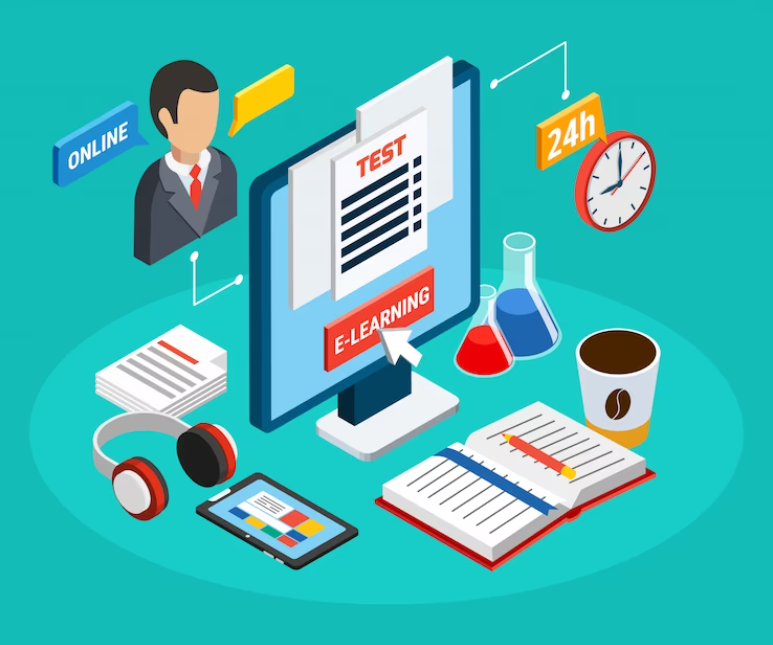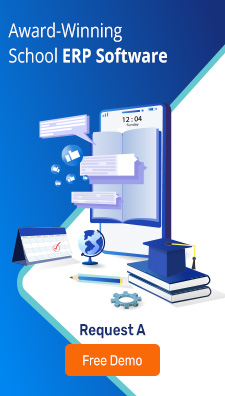
There is no denying that the educational sector is a significant contributor to the global economy. Educational institutions must employ advanced technologies to enhance educational programs and speed up the processes. With technology, educational institutes can organize and perform every activity more effectively. A dedicated institute management software can help education institutes on multiple levels. In this blog today, we shall discuss the different types of modules of institute management software and explore how they can help to increase overall efficiency.
Top Modules of Institute Management Software
An institute management software is used for managing the operations of a school, college, or any other type of educational institution. They help in increasing the productivity of a system and reduce the need for manual effort. Here are the most sought-after modules of an institute management system.
-
Admission Management
This is one of the most integral institute management system modules that bring the entire admission process online. This allows an easy online admission process, starting from online registration and application form submission. It also offers the option to submit relevant supporting documents, making the entire paperwork easier. The common processes in the admissions process of an educational institution include inquiry forms, applications, document submission, examination, shortlisting, and counseling. A dedicated institute management system helps in combining all the procedures within a single module, making the academic workers’ and institutions’ lives simpler.
-
Course Management
Enrollment in different programs and courses, at the same time, should be managed smoothly by higher education institutions. It is time-consuming to manually track all the programs and courses with student registration information. Using an institute management system can help manage the institution’s multiple programs and enrol or remove students as needed. One of the most important modules within an institute is program and course administration because it creates and manages the wide array of programs and courses offered by other departments.
-
Examination Management
Examinations are a task with a lot of pre-and-post-examination processes involved. These include choosing the test day, deciding the exam location, assigning the staff, deciding the assessment method, scheduling the exam, announcing, and disseminating the results, and more. The examination module of an institute management system includes a wide array of features that enhance the effectiveness of the examination process. With a dedicated institute management software, you can choose the type of marking you want to use.
-
Administration
The best way for a contemporary educational institution to manage and organize all processes efficiently is automation in administration. Managing different certificates, documents, and files requires administrators to process them automatically. Thus, institute management software eliminates the need for human labour while increasing simplicity and flexibility. With institute management software, educational institutes can manage and automate the process of managing the administration of certifications.
-
Fee Management
This is one of the most important modules of the institute management software. Employees, administrators, students, and other officials struggle to receive accurate information on fee collection, the submission deadlines for every student, penalties, and other fee-related information. On the other hand, students find it tough to balance the fee-related activities with the study time. With a dedicated fee management module, the ERP system will be even more powerful. It will take the additional burden off your shoulders and manage the fee-related processes error-free.
-
Payroll Management
This is the most crucial module among all the modules of the institute management system. It controls the salaries of all the faculty members and has a significant influence on the overall expenditure of the institute. The ERP system helps in tracking the payroll status of all professionals, and it ensures there is no discrepancy throughout the institute.
-
Staff Management
The teaching staff or the faculty members devote their time, effort, and creativity to academic tasks when student records, programs, admissions, courses, exams, and administration tasks are efficiently managed. With institute management software, teachers can use a creative teaching technique because of the implementation of new technology. Students also participate much more actively in class, which boosts the overall productivity of the system.
-
Library Management
The primary objective of any library system is collecting, storing, organizing, retrieving, and making information sources accessible for the customers. All the necessary and significant elements are added in this module. With software in place, it is no longer necessary to spend long hours organizing large data records and updating them daily. Thus, it saves time for the faculty and helps to streamline the process.
Try SFT Roll Call
Latest Posts
Categories
-
- alumni management system (1)
- Attendance Management System (5)
- best educational ERP software (5)
- college admission management software (1)
- ERP (5)
- Examination Management (6)
- Institute Management Software (1)
- lesson planning solution for school (5)
- Library Management System (6)
- school management software (9)
- school management system India (1)
- student management software (2)
- Uncategorized (2)













